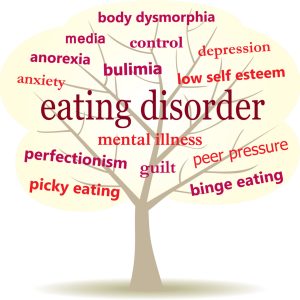5 Ways to Support A Loved One With An Eating Disorder
Welcome back to week two of Eating Disorder Awareness! Last week we explored various warning signs and symptoms of eating disorders and how they affect our loved ones. Maybe you’ve noticed those signs and symptoms growing in someone you love. It can be incredibly overwhelming to know how to help someone suffering so deeply. Take a look at 5 ways that you can support an eating disorder sufferer and help hope grow:
- Participate in treatment (but don’t be the therapist): Research shows that individuals who have family members or other support persons participate in treatment have significantly higher rates of recovery in shorter amounts of time. If your loved one is offered family therapy, participate with a gentle attitude of support. Do not allow your own anxiety to create shame in your relationship with your loved one. And remember, that it is not your job to be their therapist. Hopefully, your loved one should have specialized treatment. You can relieve yourself of the role of the “fixer” and focus on creating a healthy and healing relationship and environment for your loved one.
- Don’t be the food police: Just as trying to be the therapist can be harmful, so is the tendency to be the “food police.” Forcing your loved one to eat more or stop eating will only increase feelings of anxiety and lack of control. Instead, be honest about your observations—(“you seem to be avoiding the bread” or “I wonder if you keep reaching for food because you’re feeling anxious”) rather than forcing behaviors. If you are parenting someone with an eating disorder, set gentle, but firm boundaries around eating. For example, make it clear that they will not be able to attend track practice unless they have properly fed his/her body.
- Do not speak about the body, appearance, or weight: Eating disorders have a lot to do with the body, but just as much to do with the individual’s heart, mind, and soul. Take the focus away from the body by encouraging their strengths, talents, and efforts instead. Keep in mind that each time you focus on their body, it increases their own fixation and can trigger eating disorder behaviors.
- Be mindful of triggers: Work hard to learn your loved one’s triggers for disordered eating behaviors and rituals. Are magazines poisoning their self-image? Encourage their removal. Does spending time with certain people create anxiety for the individual? Help them set boundaries. Create space for healthy and pleasant discussions over meals. Be sure to eat normally at meal times and create an example for a healthy relationship with food.
- Encourage your loved one with truths:
….that the King of Kings replaces rebuke with REJOICING over them….(Zephaniah 3:17)
….that beauty is about one’s spirit, not outward beauty…. (Proverbs 31:30; 1 Peter 3:3)
….that the blood of Christ covers all of our imperfections…(Romans 3:23-24)
Remember that your loved one probably has a distorted view of self and God, and that food has become the avenue through which that distortion is manifested. Have grace on the depth of their suffering, and do not blame yourself—rather, be a part of the hope and restoration that they will need in their recovery. The Helper holds you all in His hands.
-Mary
